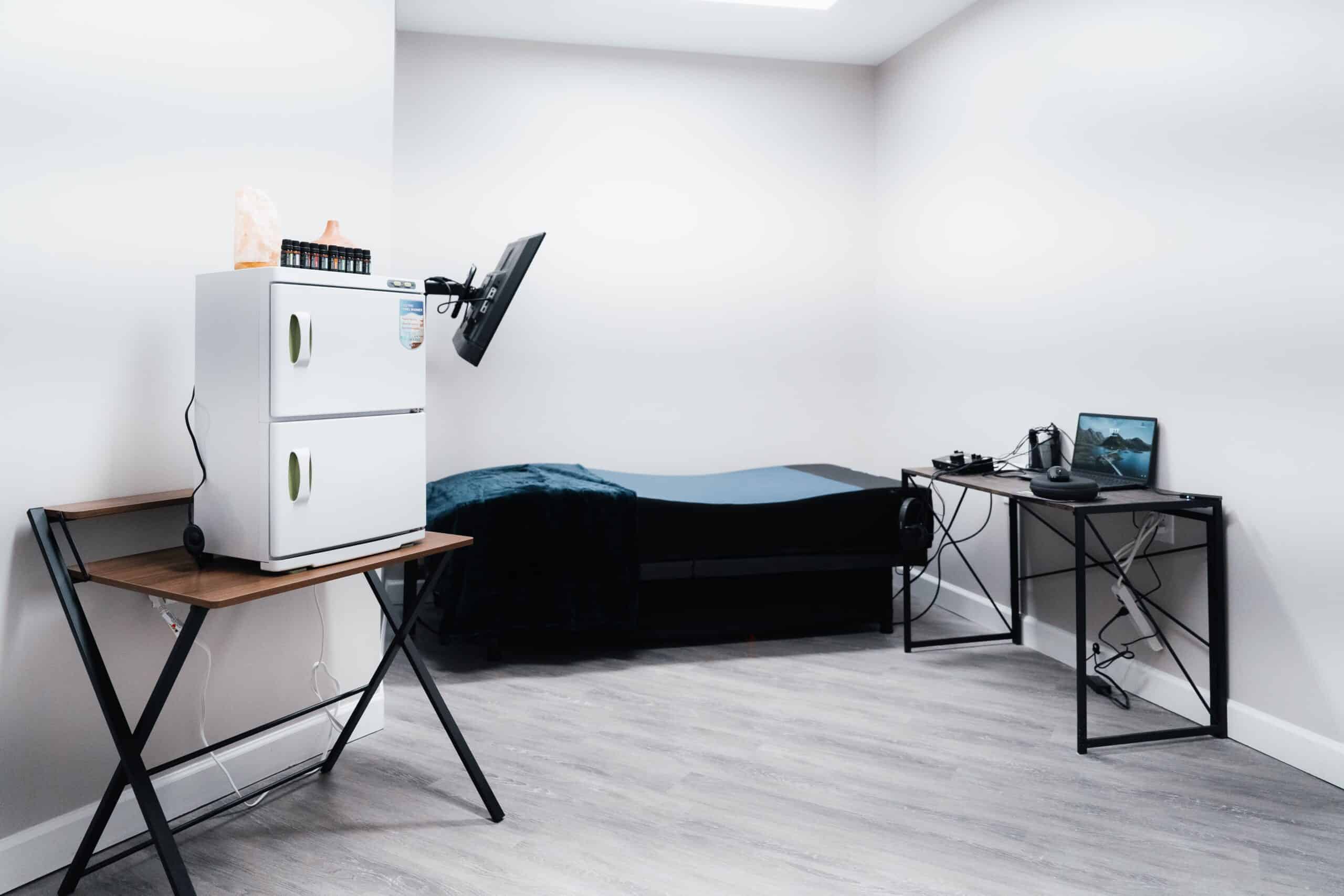Inpatient Postpartum Depression Treatment in Nashville, TN
Postpartum depression is a serious mental health condition that can impact the lives of new mothers, whether it’s her first child or not.
At Arbor Wellness, our inpatient postpartum depression treatment offers evidence-based care in a safe and comfortable setting with lasting outcomes.
If you or a loved one may be struggling with postpartum depression, learn more about our mental health treatment options.
Call us at (629) 217-0164 or verify your insurance now.
What is Postpartum Depression?
Postpartum depression falls under the heading of a major depressive disorder and is classified as a mental health disorder.
Postpartum Depression can develop within a few weeks after a woman gives birth to her baby. It can happen to females of any age. Stereotypes still exist that prove to be untrue, such as it’s just a case of the “baby blues” and will resolve itself.
Additionally, some people mistake it for a sign of being a bad mother or something that can be controlled with willpower. The Centers for Disease Control and Prevention (CDC) reported that 13% of women who had recently given birth said they felt depressive symptoms during the postpartum period.
Women with postpartum depression feel difficulty connecting with their babies. They experience feelings of sadness, depression, and being overwhelmed by the dramatic change in their lives. When these symptoms persist for two or more weeks, it’s important to be examined by a doctor with experience recognizing postpartum depression.
You are not alone. You deserve to get help.
Arbor Wellness is an industry leader in mental health treatment. Our team of top medical experts specialize in dual diagnosis treatment and are committed to ensuring that each patient is treated as an individual. Call us today, we’re available 24/7.
How Does Mental Health Treatment for Postpartum Depression Work?
Our residential treatment programs for postpartum depression treatment works by using several different approaches.
We treat all types of depression by offering access to multiple kinds of therapy, including the following:
Psychiatry
Through psychiatric care, mothers receive expert evaluation and monitoring of their mental health, along with medication management when needed. Psychiatrists can prescribe antidepressants like SSRIs that are safe during breastfeeding to help regulate mood and reduce symptoms.
Cognitive Behavioral Therapy (CBT)
CBT helps mothers identify and change negative thought patterns and behaviors. CBT provides practical tools to challenge distorted thinking about motherhood, build coping skills, and develop healthier responses to stressful parenting situations.
Dialectical Behavioral Therapy (DBT)
DBT teaches mindfulness, emotional regulation, distress tolerance, and interpersonal effectiveness. These skills help mothers manage overwhelming emotions, reduce black-and-white thinking, and improve relationships with their baby and support system.
Genetic Testing
Pharmacogenetic testing can help identify which medications may work best based on a mother’s genetic profile, potentially leading to more effective and personalized medication treatment with fewer side effects.
Somatic Therapy
By focusing on the mind-body connection, somatic therapy helps mothers process trauma and stress stored in the body. Techniques like breathwork and gentle movement can help regulate the nervous system and reduce anxiety.
Holistic Therapy
This approach addresses the whole person through lifestyle changes, nutrition, exercise, sleep hygiene, and stress management. Complementary practices like acupuncture, massage, or herbal supplements may provide additional support when used alongside conventional treatments.
Red Light Therapy
While research is still emerging, red light therapy may help regulate circadian rhythms and boost serotonin production, potentially improving sleep and mood disturbances common in postpartum depression.
Biosound Therapy
This combines binaural beats, music, and gentle vibration to promote relaxation and reduce stress. The synchronized sound and vibration may help calm an overactive nervous system and promote emotional balance.
Alpha-Stim
This FDA-cleared device uses cranial electrotherapy stimulation to help reduce anxiety, depression, and insomnia. It may help normalize brain activity patterns and increase production of feel-good neurotransmitters.
If You are in need of immediate assistance...
Don’t hesitate to contact us immediately. In the case of a medical emergency please contact 911 or visit your local emergency department.
How Is Postpartum Depression Diagnosed?
Postpartum depression is typically diagnosed through a combination of screening tools and clinical evaluation by healthcare providers.
During routine postpartum checkups, doctors often use standardized questionnaires like the Edinburgh Postnatal Depression Scale (EPDS) to assess new mothers for symptoms of depression.
These screenings look for persistent feelings of sadness, anxiety, hopelessness, and difficulty bonding with the baby that last longer than two weeks.
Healthcare providers also conduct thorough interviews to understand the mother’s emotional state, sleep patterns, appetite changes, and ability to care for herself and her baby.
To make a formal diagnosis, symptoms must significantly impact daily functioning and not be attributed to other medical conditions, such as thyroid disorders which can be common after pregnancy.
Signs and Symptoms of Postpartum Depression
While signs of postpartum depression vary per person, there are common signs that a mother and her loved ones should look for.
She may qualify for inpatient postpartum depression treatment if she experiences some of the following signs and symptoms:
- Consistent feelings of sadness or depression
- Feeling helpless or guilty
- Being overwhelmed
- Low self-esteem
- Feeling anxious or moody
- Crying
- Change in appetite
- Sleeping too much or too little
- Trouble concentrating or making decisions
- Feeling like a bad mother
- Feelings of anger or resentment towards the baby or the woman’s partner
- Thinking about harming the baby or herself
Side Effects of Postpartum Depression
The side effects of postpartum depression extend beyond just the feelings a woman experiences. Her physical health and mental well-being can both decline as a result of this condition.
If left untreated, it can affect the relationship between mother and child, and even cause long-term discord in relationships with partners and other family members. Many women start to isolate and even avoid their other children out of feeling hopeless or unable to be a “good” mom.
Some women turn to abusing drugs or alcohol in an attempt to self-medicate. Postpartum depression can also cause other co-occurring mental illnesses, such as anxiety or PTSD, to worsen.
As well, some women begin to self-harm or have suicidal feelings. Attending inpatient postpartum depression treatment helps women put an end to these detrimental side effects and climb out of the abyss of negative emotions.
How Long Does Postpartum Depression Treatment Last?
How long treatment lasts depends on a few factors. We assess each person for their physical and mental health.
We discuss their symptoms, the severity of them, and the length of time they have had them.
Typically, inpatient postpartum treatment can last 30 days or more is necessary, with many women doing better if they receive treatment from us for 60 days or more.
Benefits of Inpatient Postpartum Depression Treatment
At Arbor Wellness, our specialized inpatient postpartum programming allows a calm, serene environment where mothers can let go of daily responsibilities that make recovering from depression so taxing. In addition, we offer the following:
- Specialized Maternal Care: Staff members are specifically trained in perinatal mental health, understanding the unique challenges of postpartum depression. They can address concerns about bonding with the baby, physical recovery from childbirth, and the transition to motherhood.
- Peer Support Network: Being surrounded by other mothers going through similar experiences reduces feelings of isolation and shame. Mental health support groups often develop into lasting support networks that continue after treatment ends.
- Skills Development: Mothers learn practical coping strategies for managing depression symptoms, stress, and anxiety. These skills are essential for long-term recovery and preventing future episodes
. - Transition Planning: Before discharge, thorough aftercare plans are developed to ensure continued support. This includes connecting mothers with local resources, outpatient providers, and support groups in their community.
Additionally, they have access to prescription medications that can make a huge difference. Inpatient staff members include doctors, nurses, psychiatrists, and other mental health counselors. Each expert has experience treating people with depression and providing the compassionate care they need.
Begin Inpatient Postpartum Depression TreatmenT Today
Postpartum depression drastically impacts how a new mother feels and can cause great concern among her family.
Fortunately, effective treatment is available that helps women feel like themselves again. Arbor Wellness created an inpatient postpartum depression treatment program that addresses the emotional and medical imbalances that come with this challenging condition.
Would you like more information on our postpartum treatment program? Visit our admissions page now and find out how we can help you feel better.
More on Postpartum Depression:

Medically Reviewed
Medically Reviewed by Dr. Thompson
Last Updated on:
January 14, 2025
We Work With Most Major Insurance
Did you know most major health insurance plans with out-of-network benefits can help cover most of the costs associated with our program? Click below to find out your coverage and treatment options right now.





























